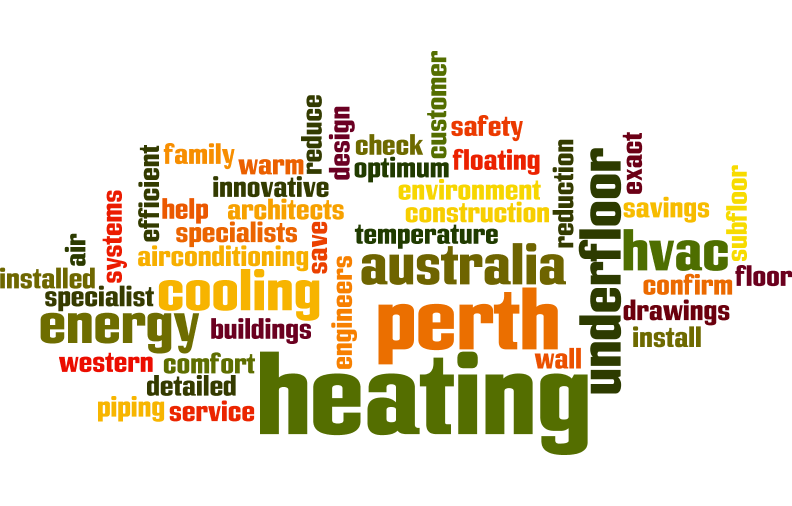If you’ve ever dealt with mould, dampness, or condensation in your home, you know how frustrating and unhealthy it can be.
Many heating systems—especially ducted heating and gas heaters—can actually make indoor air quality worse, leading to:
❌ Excess moisture buildup
❌ Poor air circulation
❌ Increased dust and allergens
The good news? Hydronic floor heating is one of the healthiest heating options available. It provides gentle, even warmth without drying out the air or encouraging mould growth.
Let’s break down:
✔ How floor heating prevents mould & dampness
✔ Why it’s better for indoor air quality than ducted heating
✔ Who benefits most from cleaner, healthier air
How Floor Heating Prevents Mould & Dampness 🦠🚫
🚀 Here’s why hydronic floor heating is different from traditional heating systems:
✅ 1. No Hot Air Blowing Moisture Around
✔ Ducted heating blows warm air around the home, creating temperature fluctuations that lead to condensation on cold surfaces.
✔ Floor heating gently radiates warmth, keeping humidity levels stable and preventing excess moisture buildup.
✅ 2. Keeps Floors Dry & Warm
✔ Mould thrives in cold, damp conditions—especially on tiled floors and walls.
✔ Hydronic heating warms floors evenly, reducing the likelihood of dampness forming.
✔ Perfect for bathrooms, kitchens, and basements, where mould is most common.
✅ 3. Reduces Condensation on Walls & Windows
✔ When cold air meets a warm surface, condensation forms—this is a major cause of mould growth.
✔ Floor heating prevents extreme temperature differences, keeping the home warm without overheating.
🚀 The result? A drier, warmer home with fewer conditions for mould to grow.
Why Floor Heating is Better for Indoor Air Quality Than Ducted Heating 🌿💨
Traditional heating systems—especially ducted air systems, gas heaters, and split systems—can make indoor air quality worse by:
❌ Blowing dust and allergens around—bad news for allergy sufferers.
❌ Drying out the air, leading to irritated skin, eyes, and throat.
❌ Spreading bacteria and mould spores from dirty ducts and filters.
🚀 Why hydronic floor heating is better for your health:
✔ No air movement = no dust, allergens, or bacteria being circulated.
✔ No dry air—maintains natural humidity levels in the home.
✔ No combustion gases—unlike gas heaters, which can release harmful fumes.
✔ Silent operation—no noisy fans or sudden blasts of hot air.
💡 Who benefits most?
✔ Asthma and allergy sufferers—no dust, pet hair, or pollen being blown around.
✔ People with sensitive skin—no dry air causing irritation.
✔ Families with kids and pets—a healthier indoor environment.
Does Floor Heating Work Well in Humid Climates? ☀️💦
One concern some homeowners have is whether floor heating works well in humid environments.
🚀 The good news? Yes! Hydronic heating actually helps control humidity by preventing condensation buildup.
💡 Tips for using floor heating in humid areas:
✔ Keep the system running at a steady temperature—don’t blast it on and off.
✔ Ensure proper ventilation in bathrooms & kitchens to remove excess moisture.
✔ Combine with a heat recovery ventilation (HRV) system for the best air quality.
🚨 What doesn’t work?
❌ Gas heaters with no ventilation—they release moisture into the air.
❌ Ducted heating in poorly insulated homes—causes condensation issues.
Final Thoughts – Is Floor Heating a Good Choice for a Healthier Home? ✅🌿
🚀 Yes—if you want a warm, dry, and mould-free home.
✔ Prevents mould growth by keeping floors warm & dry.
✔ Eliminates air movement that spreads dust & allergens.
✔ No dry air, no noise, and no harmful gases.
✔ Works perfectly in humid and dry climates alike.
📞 Want a healthier home with perfect warmth? Contact Euroheat Australia today for expert advice and a custom floor heating system!





